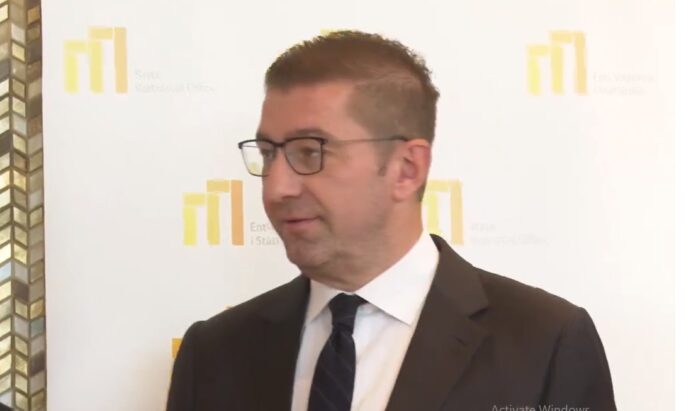‘Having renewables is a sign of energy independence’

What balance does it make of the energy production sector in Portugal?
By 2024 we were able to incorporate 80% energy production from renewable source and in the first four months of the year we will already with 83.3%. From the point of view of the benefit it brings, either to business or residential consumers, either for everything that has to do with the attraction of foreign investments due to the high incorporation of renewables in electricity production reveals a profile that Portugal is desirable. From Europe to 27, including Norway, Portugal is always in a fourth country with the highest incorporation of renewable to the other countries of the European Union. Although the assessment is clearly positive, this does not mean that we do not have much work yet to do and that we have many challenges to overcome.
In the blackout there were those who warned the excessive dependence on renewables…
Having renewables is a sign of having energy independence. Using fossil fuels, natural gas and oil is a sign of having energy dependence. We all know that either oil and natural gas are energetic that are carbonizable, either by OPEC, in the case of oil and natural gas markets. It is not true that when we incorporate renewables we increase our dependence. We are meeting a need with an energy that reduces our energy dependence from abroad. If I have the electroproductors centers located in Portugal or Europe and produce electricity from there I have full control over them and does not increase dependence, reduces dependence. What has been said is an urban myth, there is no correlation between excessive renewables and falling the electrical system. I realize that it is very simple to accuse renewables.
Do you think renewables are used as a scapegoat?
Of course, because these people have no interest in which the country rides forward and evolves from an optics of energy competitiveness. They are still clinging to the myths of the past and think we have to return to coal and energy solutions that make no sense.
Some say there has been a precipitation in relation to the closure of the coal centrals…
First, the blackout was not caused in Portugal, was caused in Spain. Then it was neither a problem with the generation of electricity nor its consumption. It was a problem of Spain’s power grid, that is, the equivalent of REN in Spain and had to do with how they divided the incorporation of electricity between consumption and production. Previously we had already had a lot of days with much more incorporation of the renewable in the electric mix and we had no blackout. But there is always the temptation to make this correlation, I do not understand well with what purpose because it does not benefit the country at all.
In April said that the sector is starting to have difficulty funding projects. Have these difficulties have been overcome?
This had a causal link and was related to a proposal for the Socialist Party’s bill to apply imi to renewables. IMI is a tax to apply buildings and buildings and want to blindly apply it to renewables not only creates a new cost structure but also makes no sense from a legal point of view. We have court decisions to give the wind and other electroproductors reason, as we have already paid it in which it is considered a building and it does not seem to make any sense to put equipment to become buildings, regardless of its nature. If we continue to increase this load, be it now the new IMI on renewables or clawback (price correction measure in the Electricity Market in Portugal), whether CESE (Extraordinary Energy Sector Contribution), or the financing of the social fare we are putting a very large load of taxes and rates over the electricity sector and as we cannot pass on these costs to the market, because the market is an Iberian market, we risk, at risk, at risk, because the market is an Whether in Portugal and Spain, to reduce the number of projects that can be funded. It was in this framework that I was referring to me, we continued to fund projects in Portugal, so much so that we have been doubled since 20233, the photovoltaic from year to year and the expectation is that by the end of 2030, 2031, 2032 also implements other technologies that are part of the National Energy and Climate Plan 2030.
What projects are on the table?
We made a calculation to reach the goals of PNEC and only from the point of view of electricity generation, that is, investing in wind, photovoltaic centers, storage, water power plants, centers of other renewable technologies, in the use of networks that already exist for hybridization we are talking about 20 billion euros only for generation. But if we add what we need to do on networks and what we need to do on the side of consumption we are talking about a very significant investment by the end of 30/31. And all this investment to be implemented and to be used in Portugal, obviously generates more investment, employment and employment generates tax revenue, etc. Here we have a virtuous cycle of the economy and this is perfectly within our reach, but it is also necessary to develop economic diplomacy to attract new electrical consumption, such as the data centers, the green technologies for production we use from renewable energy, with green hydrogen and green methanol. All of this will increase electrical consumption and with this increase we will have more and more investment.
He spoke of taxes that penalize the sector, but companies continue to pay the extraordinary contribution about the energy sector…
There has already been an initial sentence to consider that CESE is unconstitutional, we are still waiting to see what the next steps will be. The application of CESE to renewable energy is the financing of the social fare by the producers of electricity when this is a function of the state, it does not seem to make much sense. But the rule we have is always to pay and discuss later. However, this has, of course, additions of demand in terms of financing needs for what we call circulating capital, because companies have a capital structure, if revenues fall and increase costs will require short -term financing. We are in such a requirement that, from a certain moment, projects begin to be financing.
With the change of government there may be any retreat from this new IMI rate since it was a PS proposal?
I hope there is no enthusiasm for this measure because it makes no sense. We have already paid IMI on what is considered a building, that is, we paid IMI on command buildings, paid IMI on the cable ditches, paid MI on panel settlement metal structures, in the case of photovoltaic, and paid IMI on the shoes where the wind towers are based. Now, start paying IMI on equipment, as are the panels themselves or to pay Mii on the system that is at the top of the wind that makes it be able to convert the wind energy into electricity is too little. We are trying to turn equipment into buildings by decree. Electricity producers have already publicly stated that they are interested in discussing and talking to the National Association of Municipalities to find a solution that benefits the municipalities. It cannot be in the headquarters of heritage, it must always be in the face of income. But producers are completely available to discuss reimbursements to municipalities.
Did the recent political instability have questioned some projects?
What we feel is that these issues always generate some slowdown in the projects that are underway, but it was also two months and had no significant impact. In this case, what is important is that, from the point of view of energy policy, it is possible to make a set of important advances, although obviously, whenever we have the fall of a government, the message that goes out of Portugal is that we are increasing our risk country and this, of course, is to avoid because when we increase our risk we increase the cost of financing and indebtedness and this does not benefit consumers of electricity, only harm.
In relation to the National Energy Plan. Has this impasse in the government to compromise some goals?
Government changes what they prevent is to accelerate what are some obstacles. Last week, according to a report that was analyzing energy and climate plans, the European Union said countries are in line with the goals. Portugal has the advantage, as it just said, of already incorporating 80% of renewable energy in electricity production.






/s3/static.nrc.nl/wp-content/uploads/2025/06/12195350/web-1206SPOpromes.jpg)
